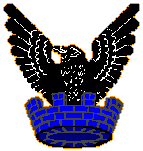 Tinker Cake Recipe
Tinker Cake RecipeI also checked Pleyn Delit, Two Fifteenth Century Cookery Books and Martha Washington.
There are several recipes for apple "fritters"--fruit coated in thin batter and deep fried (highly simplified description) in the first two books (Harl. 279, p.44 "fretoure", Harl. 4016, p.73 "frutours"; PD39, variation on "frytours of pasternakes" from Forme of Curry) and Martha's gives a recipe for "applesauce pancakes"--pancake batter with baked apple pulp added (C151, p. 161 "to make little frying cakes with ye pulpe of apples or any other fruite")
So, fruit and batter was a period combination, but I have not been able to find concrete evidence of this type of "cake" thingie, as opposed to more fritter-y and crepe-y and wafer-y types.
TINKER'S CAKES
1/2 lb. flour (1.5-1.75 c.)
1 medium apple
1/4 lb. butter
1 Tbs. milk
3 oz. white sugar (1/2 c.)
Rub the butter into the flour and stir in the sugar. Peel and grate the apple and add with the milk. Mix into a firm dough. Turn onto a floured board and roll out to about 1/4 inch thickness. Cut into rounds and bake on a greased griddle for 3 or more minutes on each side. Makes about 16 cakes.
The recipe as my lord and I classically make it is white flour, so that's not period*. We did once try 50-50 white and wheat flour; I thought they were OK, Gerek didn't like it much. I have converted the British-style ingredient weights to cup measures.
Let's see. I usually start the butter with a pastry cutter, and rub when things get good and small; saves over-working the flour a lot. You do want to do the "rub" step, as this "butters" all the flour uniformly. We usually chop instead of grate (we prefer discernable chunks). Experiment with different types of apples--Gerek prefers a sweeter apple to eat, but likes a tarter one for this, because of the sugar in the recipe. A tarter apple will make a less sweet cake; these should be only barely sweet to the taste.
This is a real nice dough to handle, will be quite moist, you definitely need to flour the board to keep it from sticking. If your dough seems too dry, try adding a few drops of apple juice, as needed. A biscuit cutter is a little small, we use (what?, I can't remember! I think it's a small can with both ends cut out that's maybe 1/4 to 3/8 inch bigger than a standard biscuit cutter) (cakes come out 3-3 1/2" diameter?).
Grease griddle with oil or butter. Butter will increase the chance of scorching but may be more to your taste. These get a nice golden brown and a bit crispy on the surface. A _light_ layer of flour on both sides from the board makes them easier to handle and gives a more uniform reaction to the griddle. We have lots of fun doing this at home--the griddle stretches over two different stove burners, which, of course, always heat at different rates... Have done them on the same griddle over our camp firepit (barrel half on legs) with coals (not flame!)--not any more difficult gauging the heat.
These are good hot off the griddle or flat cold. The really great thing aboutthese for camp cooking is the simplicity and adaptability. You can make themfrom scratch on site; make and freeze dough at home and use the lump for the freezer; or go clear to the cut cakes stage before freezing--then all you have to do is heat up the griddle & dig in the freezer!
Last updated 2/10/97.
webmaster at ravensgard.org